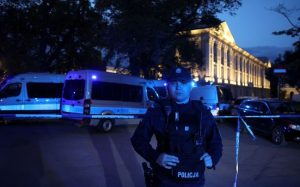No convictions for breaching sanctions on Russia
4 min readThe UK has yet to secure any convictions for breaches of financial sanctions imposed on Russia, despite the ongoing efforts to enforce these measures. The National Crime Agency (NCA) revealed this lack of conviction, stating that while cases have been investigated, no successful prosecutions have been made for breaching sanctions since their introduction.
Financial sanctions on Russia were first imposed after Russia’s annexation of Crimea in 2014 and were significantly expanded following the invasion of Ukraine in 2022. These sanctions include bans on the export of weapons technology, the illegal trade of Russian oil, and generally restricting activities that support President Vladimir Putin’s government.
In 2019, the UK government introduced a law aimed at convicting individuals and entities breaching these sanctions. However, despite the establishment of this legal framework, NCA Director-General Graeme Biggar informed MPs that while investigations into potential breaches were ongoing, only one charge had been brought so far. The NCA highlighted the complexity and length of these financial investigations as a major factor contributing to the slow pace of progress.
Foreign Secretary David Lammy recently declared that curbing Russian revenues would be his “personal mission,” emphasizing the UK’s commitment to enforcing sanctions and depriving Russia of financial resources that fuel its war efforts. Nonetheless, critics have questioned the effectiveness of Western sanctions, noting that Russian economic growth continued despite these measures. Data from last year revealed that Russia’s economy was still growing, undermining claims that the sanctions were achieving their intended goals.
The enforcement of these sanctions is primarily carried out by the Office of Financial Sanctions Implementation (OFSI), a unit within the UK Treasury. In March, OFSI received an additional £50 million in funding to enhance its ability to enforce sanctions. Despite this boost in resources, investigations into breaches have faced challenges. In October, BBC News reported that the OFSI was investigating 37 UK-linked businesses for potentially violating Russian oil sanctions. However, 15 cases were closed without penalties, and the outcomes of additional cases remain unclear.
OFSI did issue its first Russia-related penalty in September, when it fined Integral Concierge Services, a London-based company, £15,000 for having a sanctioned individual on its client list. The company had made or received 26 payments involving a person whose assets were frozen under Russia sanctions. However, beyond this fine, the enforcement of sanctions remains limited.
In November, MPs on the Treasury Select Committee questioned OFSI officials about the efficacy of their investigations. OFSI, in turn, pointed out that the NCA is responsible for prosecuting and convicting those who breach sanctions. In a letter to the committee, NCA Director-General Biggar explained that cases of this nature are complex and can take years to complete. He noted that similar cases in other countries have taken an average of seven years to resolve.
The Sanctions and Anti-Money Laundering Act, under which these prosecutions are brought, has only been in place for four years. Biggar stated that the NCA was handling several ongoing investigations related to financial sanctions breaches, some of which were still awaiting charging decisions. In February of the previous year, the NCA had brought charges against the former governor of a Crimean city for circumventing sanctions and money laundering, but this remains an isolated case.
Dame Meg Hillier, chair of the Treasury Select Committee, emphasized the importance of demonstrating consequences for breaches of sanctions. She argued that maintaining pressure on Russia-linked organizations is crucial to ensuring that the UK’s sanctions regime remains effective and deterrent. Hillier called for a clear deterrent to prevent anyone from attempting to circumvent the sanctions imposed on Russia.
Foreign Secretary David Lammy has also pointed to the significant financial impact of Western sanctions on Russia, claiming that they have deprived the country of more than $400 billion since the invasion of Ukraine in February 2022. He described this sum as equivalent to four additional years of funding for the war. When questioned by MPs about actions against UK companies facilitating the Russian oil industry, Lammy hinted that more measures could be forthcoming, although no such actions have yet been taken.
In December, the government appointed former Labour MP Baroness Margaret Hodge as an anti-corruption champion, signaling ongoing efforts to combat corruption and financial crimes linked to Russia. However, despite these efforts and increased funding for sanctions enforcement, the lack of convictions remains a significant challenge for the UK government.
In conclusion, while the UK has made strides in imposing and enforcing financial sanctions on Russia, the lack of convictions for breaches highlights ongoing difficulties in ensuring compliance. The complexity of financial investigations and the length of time required for such cases to reach conclusion are key factors contributing to the slow pace of prosecutions. For the sanctions to have a meaningful impact, it will be crucial for the UK government to strengthen enforcement and demonstrate that violations will result in serious consequences.







